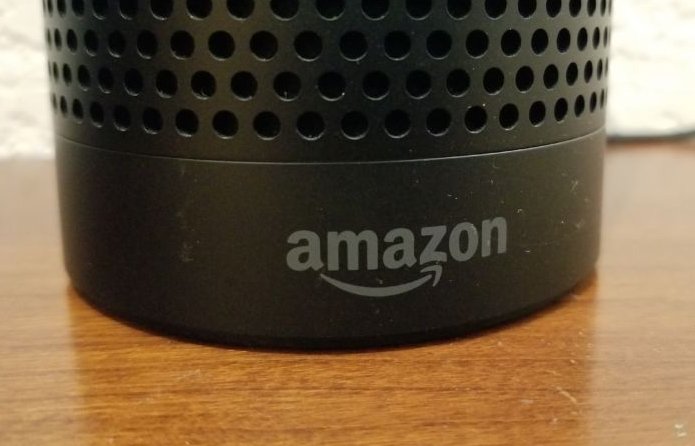
Amazon quietly changed its terms of use last month, dropping a clause that forced customers into arbitration. Now, people can sue the company individually or in a class action.
The change apparently was brought about by a surge in arbitration demands over revelations that Amazon’s Echo devices were sometimes recording and saving conversations without consent, including those involving children. Those recordings allegedly ran afoul of laws in several states that require consent before recording and data collection.
Two state laws, the Illinois Biometrics Information Privacy Act and the California Information Privacy Act, have been key drivers of complaints against Amazon. Lawyers have filed class-action suits on the grounds that Amazon’s Echo recordings violated both consent laws and biometric laws, since some recordings were used to develop voiceprints to identify individual users in a household. But Amazon’s attorneys have successfully argued on several occasions that the cases should be kicked out of court and sent to arbitration.
Yet, this wasn’t quite the “win” that Amazon wanted. Echo users have now brought more than 75,000 arbitration demands against the company, according to a Wall Street Journal report. Because Amazon’s previous terms said that the company would pay for arbitration filing fees, the retail giant was on the hook for tens of millions of dollars before a single case was heard. Amazon has now changed course.
Arbitration everywhere
Over the last decade or so, companies have increasingly embraced arbitration in their contracts. Companies typically expect that only a small fraction of customers who would otherwise qualify for class-action status will follow through with arbitration demands. The companies pay arbitration fees under the assumption that those fees will be significantly lower than defending against lawsuits or paying settlements and judgments.
In 2018, the US Supreme Court reinforced the power of arbitration clauses by allowing companies to force employees into arbitration over wage theft and other work-related violations. The 5-4 decision allows companies to sidestep potentially costly individual and group litigation in favor of cheaper, though frequently less transparent, arbitration.
As a result of this decision and others that preceded it, arbitration agreements have spread like wildfire across a range of industries. For telecom companies like AT&T and Verizon, arbitration is a requirement for obtaining service, and the only way to opt out is to not use their service. T-Mobile includes arbitration as the default in its contract, though customers can opt out. Apple’s credit card also requires arbitration, though there, too, you can opt out. Online home goods retailer Wayfair includes an arbitration clause with every purchase, as one customer discovered when a headboard he bought on the site arrived with bedbugs. And Google famously pursued engineer Anthony Levandowski into arbitration for allegedly downloading confidential files before taking a job at Uber. That case resulted in the arbitration board awarding Google $179 million. The arbitration agreement was a part of Levandowski’s employment contract.
Google ended arbitration requirements for employees in early 2019, though, allowing both new and existing employees to sue the company directly and in class-action lawsuits.
Turning tide
What seems to have turned the tide against arbitration in smaller, consumer-oriented cases is a new trend in the legal profession. Tech-savvy lawyers have begun using digital marketing tools to recruit and sign up thousands—even tens of thousands—of customers to participate in arbitration. One firm, Keller Lenkner, has reportedly built its own IT infrastructure to handle client recruitment and communications. Where other small firms outsource their IT operations, the Chicago-based firm even employs a full-time director of IT and analytics.
In an early case, Keller Lenkner recruited more than 5,000 DoorDash drivers who claimed they were improperly classified as contractors. When the food delivery company found itself faced with millions of dollars in arbitration fees, it attempted to push the drivers into filing a class-action lawsuit. US District Judge William Alsup instead forced DoorDash to arbitrate each claim, costing the company nearly $10 million even before the cases were decided. In November, DoorDash individually settled claims brought by 35,000 drivers for a total of $85 million.
“No doubt, DoorDash never expected that so many would actually seek arbitration,” Alsup wrote in his order. “Instead, in irony upon irony, DoorDash now wishes to resort to a class-wide lawsuit, the very device it denied to the workers, to avoid its duty to arbitrate. This hypocrisy will not be blessed.”
https://arstechnica.com/?p=1768911

